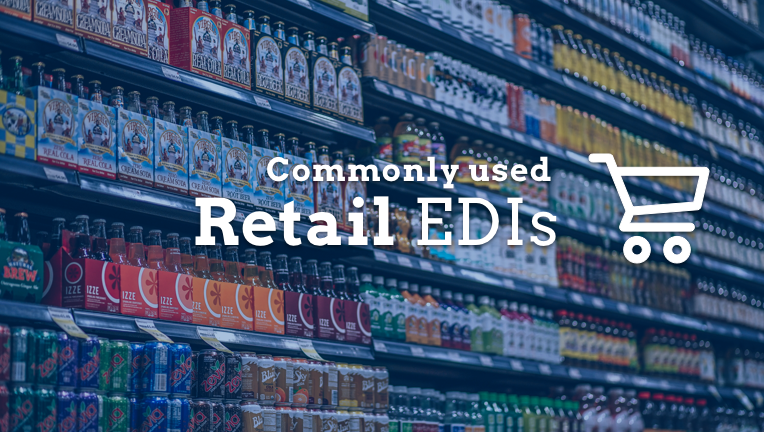The EDI standard used in the North American retail industry is the ANSI X12. In simple terms, EDI transactions are messages exchanged between trading partners for different purposes. These messages are defined by the EDI standards. There are a lot of X12 EDI transactions used in the retail industry.
Few X12 EDI transactions used in retail
ANSI X12 810
EDI 810, is an electronic version of a paper invoice. It typically contains invoice details – invoice number and date, product details – item number and quantity. It also contains the shipping details, payment details like rate and discounts and payer details (customer code). An EDI 810 is usually sent out in response to the Purchase Order (EDI 850) or after the order is fulfilled and an Advance Shipping Notice (EDI 856) is sent out.
ANSI X12 816
EDI 816, an electronic version of the Organizational Relationships document, is used to provide the location information of a company, its related entities, and their corresponding code reference. It also depicts the organizational relationship between the different entities e.g. by service or operation, distribution centres, product return centre or service centres, or member and parent relationship.
ANSI X12 824
EDI 824, an electronic version of Application Advice, checks the integrity of the data. It states the status of a previous transaction as to whether it was accepted, rejected or accepted with changes. Thereby, the sender of the transaction can be wary of any errors in their next transmission.
ANSI X12 850
EDI 850, an electronic version of Purchase Order, is used for requesting goods. It contains information such as the details of shipping, product names, prices corresponding to each item and the number of quantities required along with the terms of payment.
ANSI X12 856
EDI 856, an electronic version of Advance Shipping Notice, specifies the contents of the shipment that is about to reach the trading partner’s facility. ASN notifies the trading partner about the barcode information, tracking details, date of delivery, and time of shipment.
ANSI X12 860
EDI 860, an electronic version of Purchase Order Change, is used for making changes in the Purchase Order before the supplier ships the items. The changes may include changes in items, quantity, price, and delivery date.
ANSI X12 864
EDI, an electronic version of a Text Message. The EDI 864 facilitates the exchange of one time messages such as notifications, contract information, etc. They are intended to be human-readable messages rather than being processed by computers.
ANSI X12 940
The EDI 940, an electronic version of Warehouse Shipping Order, is used to instruct a remote warehouse to ship the necessary goods to the buyer which is usually the retailer. It contains information such as the number of goods, shipment information and manufacturer details. It also specifies the date of shipment, the time taken for delivery and item specifications. The 940 also finds use in canceling and modifying an order.
ANSI X12 945
EDI 945, an electronic version of Warehouse Shipping Advice, is sent out by third-party warehouses to the supplier. It states that the items requested by the buyer have been shipped to them. It contains the date of shipment, the time taken to deliver the items, quantity, and specification of the items shipped. The EDI 945 is sent in response to an EDI 940.
ANSI X12 997
The EDI 997, an electronic version of Functional Acknowledgement, is sent as a response to every EDI transaction document that has been received. Its purpose is to indicate whether the transacted document has been received and translated successfully. It does not, however, state whether the information received in the transacted documents is accurate or sufficient.
ANSI X12 944
The EDI 944, an electronic version of Warehouse Stock Transfer Receipt Advice, is used to inform the supplier that their shipment has been received and verified. This EDI document contains information such as supplier details, Warehouse location, time and date of receiving the shipment etc.
Reach out to the author of this blog at hello@byteally.com, and feel free to mail your comments or suggestions.
